Ending the epidemic starts and ends with each of us. Here are five critical things about HIV that you may not have learned in health class. Take a look below, learn something new about where we are in the fight to end the epidemic, and share this info with people you know.
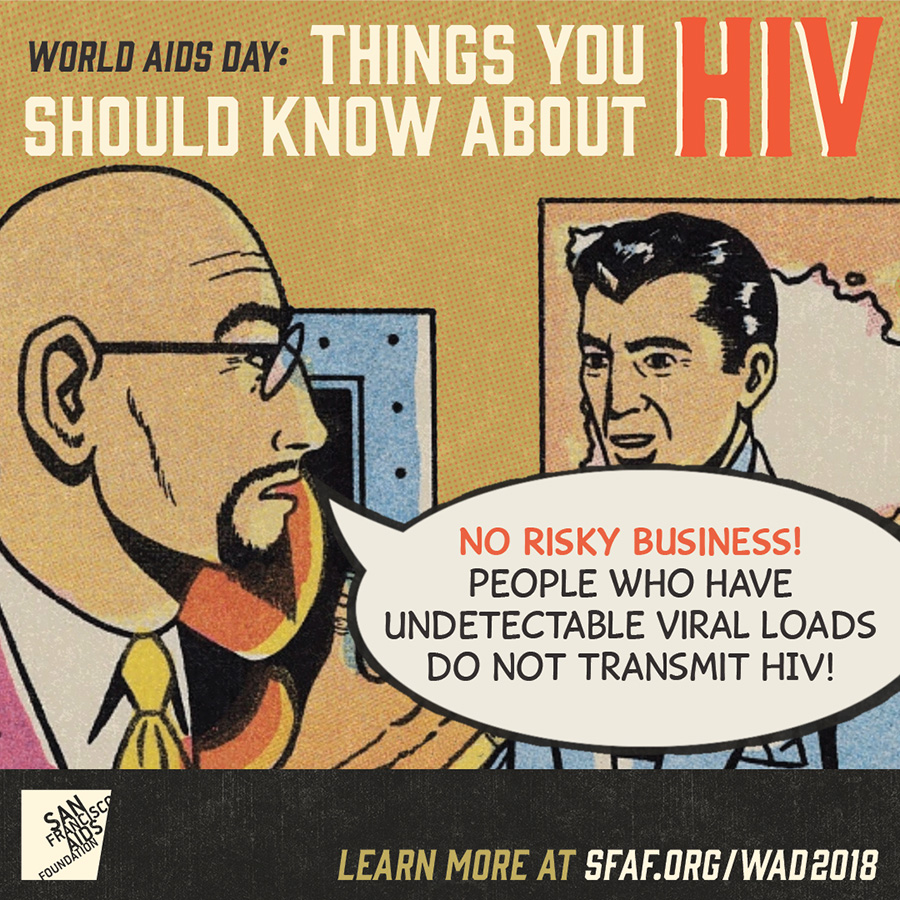
1. We Are Not a “Risk”
People living with HIV who are taking HIV medications consistently and have an undetectable viral load do not transmit HIV to other people.
Early and consistent HIV treatment—the standard of care for everyone living with HIV—is one of the most effective ways to curb the spread of the virus. Most people living with HIV who are able to consistently take HIV medications achieve an undetectable viral load in just a month or two—and then will not transmit HIV to others. Ensuring that all of us living with HIV have access to affordable HIV care is critical to our health—and also HIV prevention efforts.
Learn more about U Equals U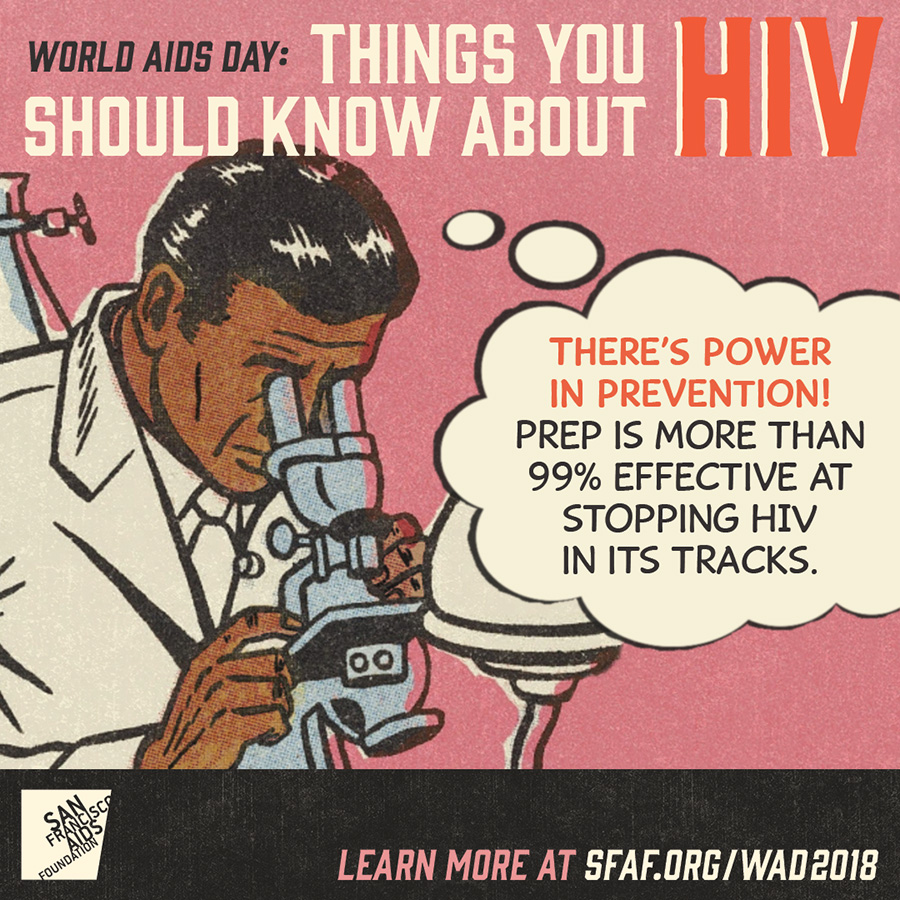
2. There is Power in Prevention with PrEP
HIV-negative people can take a pill to stop HIV in its tracks. It’s called PrEP, and when taken as intended, it’s more than 99% effective in preventing HIV infection with few side effects.
PrEP is an HIV-prevention innovation that could prevent the 38,500 HIV infections that happen every year in the U.S.—but not everybody knows about it. Help spread the word that PrEP is an option for every HIV-negative person—and that many people are able to access this prevention for free.
Learn More about PrEP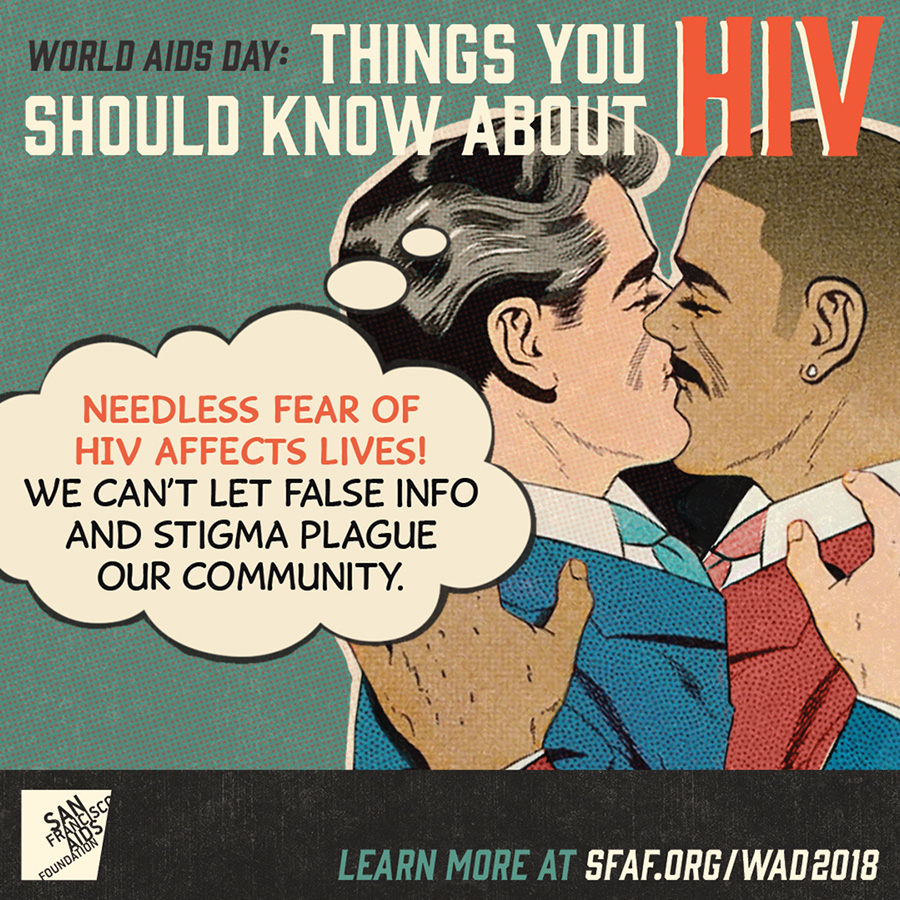
3. Needless Fear of HIV Affects Our Lives
In the era of effective and available treatment we can’t let misinformation, fear and stigma continue to plague our community.
Stigma pushes us all to the margins—making it more difficult for people to know their status, talk about HIV with sex partners, and get support if they’re living with HIV. From the language we use to unjust laws criminalizing HIV, so many things give rise to harmful environments that devalue and stigmatize people living with HIV.
See what our community had to say about how stigma harms health, impedes sex and dating and what we can do to end HIV stigma.
Learn more about HIV Stigma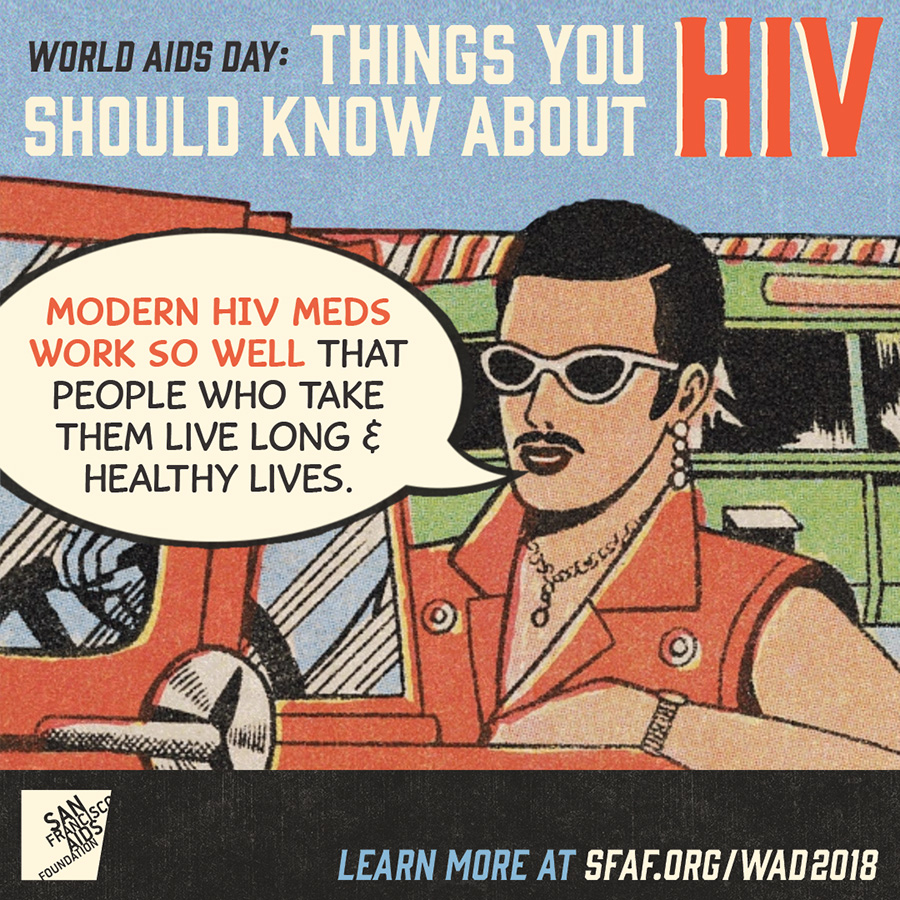
4. HIV Meds Enable Us to Live Long Lives
Modern HIV medications are potent, effective and come with fewer side effects than ever before—enabling people who take them regularly to live long and healthy lives.
By the year 2020, an estimated 6.9 million people living with HIV will be over the age of 50. Attention is now turning to this so-called “greying of the HIV epidemic,” and ways that the community and health care providers can support people with co-occurring health conditions such as cancer, heart problems and inflammatory conditions.
See the incredible impact that modern-day HIV medication have had on improving the lifespans of people living with HIV, and find out what healthy aging with HIV looks like.
Learn more about HIV Meds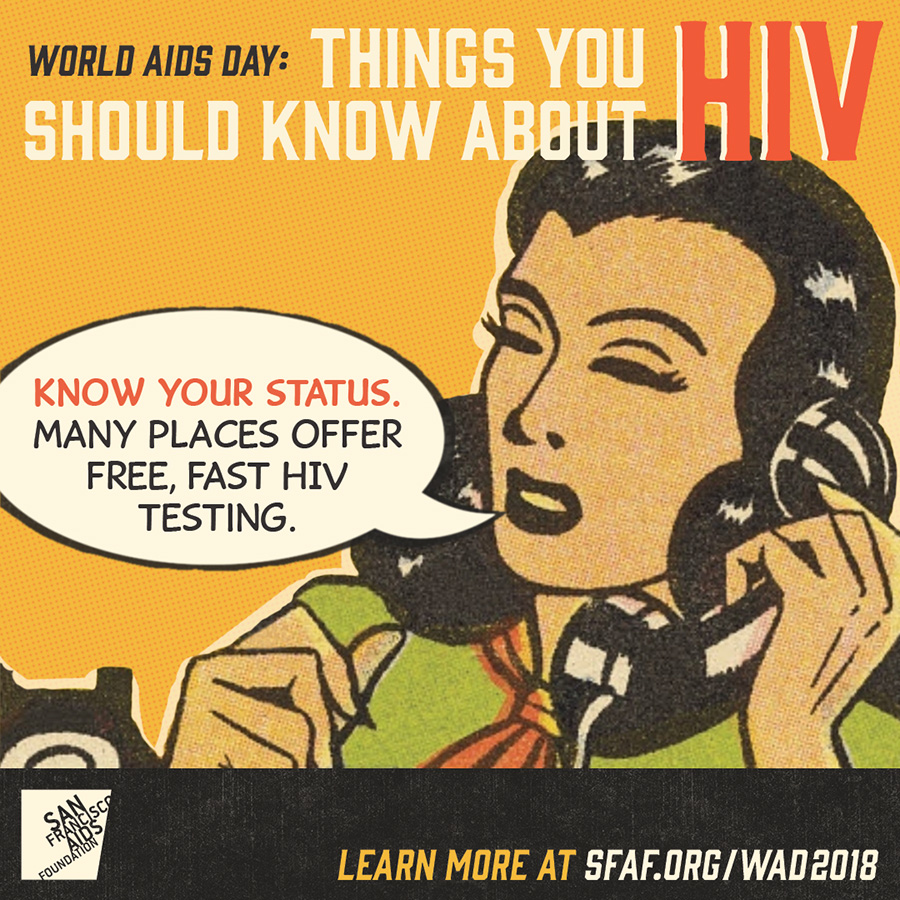
5. Know Your Status
Needless fears about HIV can make getting tested scary, but knowing your status is the first step in taking charge of your health.
It’s estimated that 15% of people living with HIV in the U.S.—165,000 people—haven’t been diagnosed. Starting treatment not only helps people with HIV improve their own health, but also prevents transmission to others. This World AIDS Day, consider the last time you’ve been tested, and share info on where and how to get tested with family and friends.
Learn More about HIV & STI TestingResources and Reading

I traveled to Europe on DoxyPEP–Here’s what happened
It wasn't until I packed my pills, and headed out for a three-week European adventure that I realized just how ahead of the curve San Francisco really is.

“Dark, sexy, decadent, with just the right amount of sleaze”
Here’s what you said about bathhouses in San Francisco.
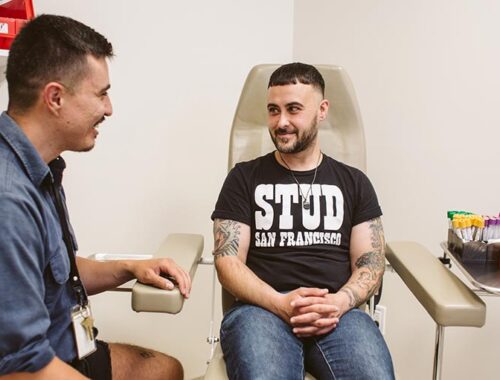
Twice-yearly injectable PrEP is highly effective for gay men and trans individuals
Twice-yearly lenacapavir reduced the risk of HIV acquisition by 96% among gay and bisexual men and transgender and nonbinary people.
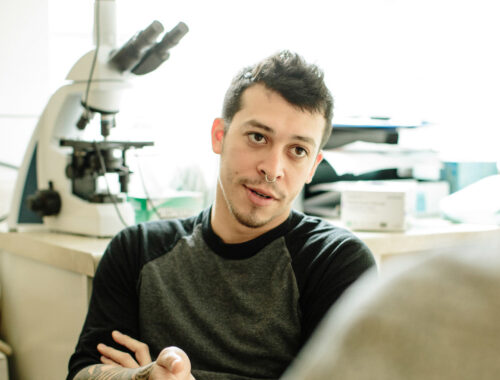
Mpox the sequel: Will it come to the U.S.?
The science behind the new strain of mpox circulating in Africa--and what it means for people living in the U.S.

Conectando a nuestros residentes de habla hispana con el cuidado
El equipo de Programa Latino en SFAF brinda un enfoque innovador para alcanzar a las comunidades hispanohablantes––conectando con las personas donde sea que estén con el servicio compasivo que caracteriza a SFAF.
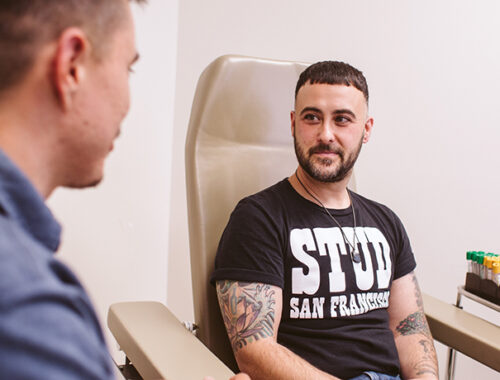
Digging into the science–and promise–of long-acting injectable PrEP
From lenacapavir offering 100% protection against HIV among cis women, to the potential for long-acting PrEP to end the HIV epidemic, Liz Highleyman offers a thorough overview of the current state of injectable PrEP.
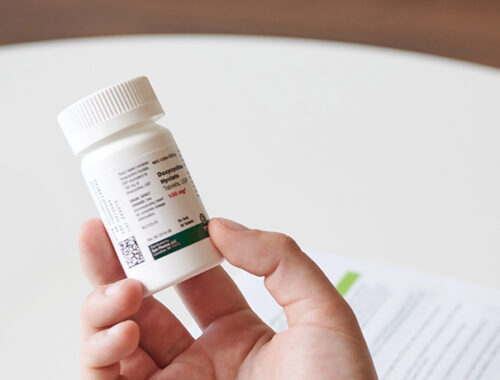
Yes, doxycycline prevents STIs in cisgender women too
For the first time, research demonstrates that doxycycline taken daily reduces STI incidence by 67% in cisgender women. Gus Cairns explains the science, and shares why previous studies may have failed.

A trans immigrant living with HIV finds hope and sanctuary in San Francisco
Leaving the Philippines for a chance to live as her authentic self, Kiki shares the risks she took in establishing a new life here in the Bay Area, and the support she found along the way.





